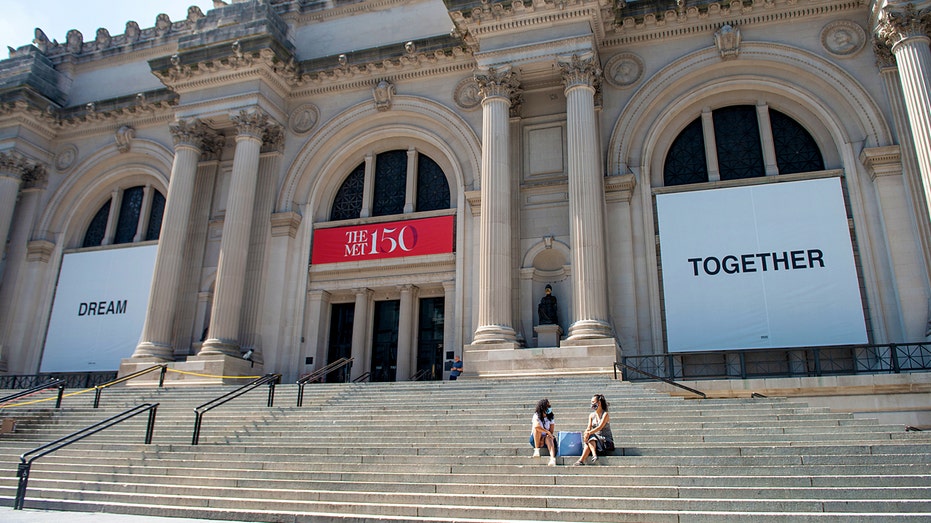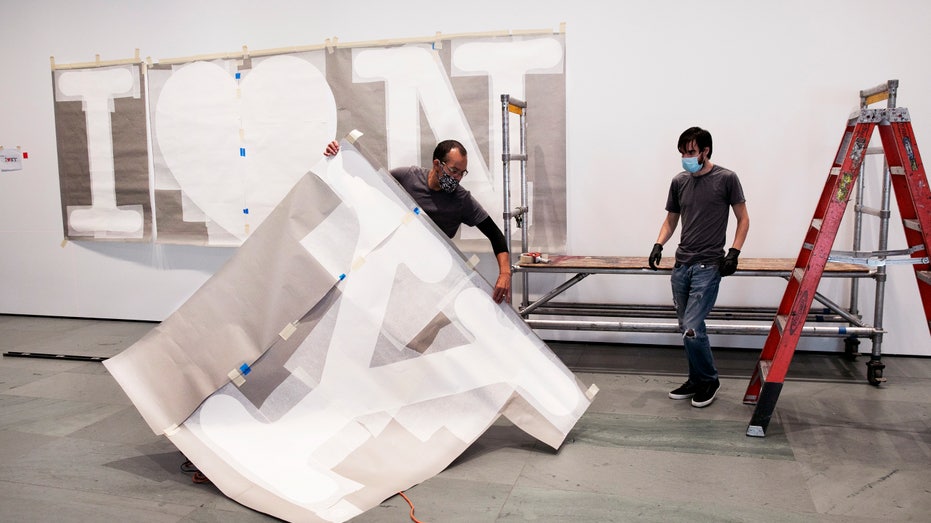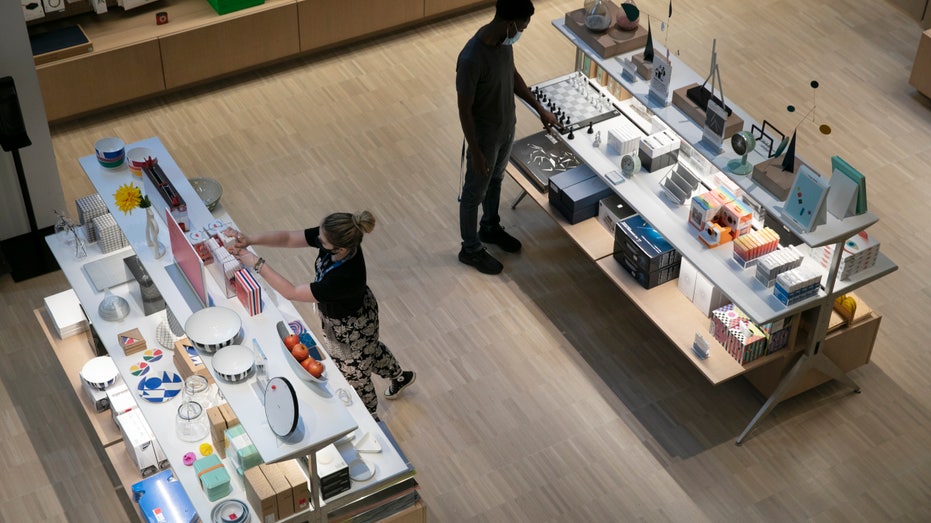New York City museums gear up to reopen with new kind of experience
Some of New York City's most famous attractions are re-opening
New York City museum leaders say they have had to “re-imagine and re-engineer" their spaces as they prepare to open their doors for the first time following months of closures brought on by the coronavirus pandemic.
City officials are hoping the re-openings will provide a much-needed boost for the Big Apple’s decimated tourism industry – but the museum experience as the public once knew it will be different this time around, with precautions including reduced hours, reserved tickets, mandating masks and limiting attendance to a quarter of capacity.
“We have to re-imagine and re-engineer the museum visit,” Ellen Futter, the president of the American Museum of Natural History, told the Associated Press. “We want to fulfill our civic mission. And we think that our mission has never been more important.”

The Metropolitan Museum of Art is scheduled to re-open Saturday. (Getty Images)
CLICK HERE TO READ MORE ON FOX BUSINESS
Welcoming back visitors is also a chance to end months of lost ticket sales. Each facility in New York has different financial models, but for those that rely heavily on attendance, the pandemic has been crippling. The Museum of Natural History – which is set to re-open Sept. 9 and is well known for its T. Rex exhibit -- has lost as much as $120 million.
The Museum of Modern Art (MoMA) opens Thursday, while The Metropolitan Museum of Art is planning to start allowing visitors to return Saturday.
Other institutions need a bit more time. The Guggenheim will reopen on Oct. 3, while the 9/11 Memorial Museum will reopen on the anniversary of the terrorist attacks.
Whether the public will turn out en masse as in pre-pandemic times is uncertain.
“There are a lot of unknowns out there. We don’t know whether people will feel comfortable coming back. We don’t know whether they’ll feel comfortable being with several hundred people indoors, even if we’re a very large space," said Glenn Lowry, MoMA's director.

George Vealsquez, left, and Charles Lester install templates for "I Love NY" at the entrance to the Museum of Modern Art, on Thursday, Aug. 20, in New York City. (AP)
NYC COUNCIL MEMBER WARNS MAYOR DE BLASIO TO TAKE EXODUS FROM CITY SERIOUSLY
But “we ardently believe that people will want to come back to museums and to see the things that are both familiar and unfamiliar — see the things that animate their mind, that make them feel alive,” he added.
While MoMA is looking at “significant losses” for up to three years, it has decided not to charge visitors for the first month.
“It just felt like the right gesture," Lowry told the Associated Press. "I think once you’ve lost a lot of money, losing a little bit more isn’t really the big issue.”
To add to the financial burden, most museums have been forced to pay for safety upgrades, like more staff, touchless bathrooms and costly air filtration systems.
“Every institution is having to look long and hard at their financial model and scale back, postponing and canceling programs and events while simultaneously pushing forward on all fundraising cylinders," said Regan Grusy, vice president of strategic partnerships at the New Museum.
The Metropolitan Museum of Art was one of the first in the city to close and, with no federal guidance, stepped up to help lead a working group of about 25 museums in the city sharing information and creating protocols.

Employees at the Museum of Modern Art arrange items in the gift shop on Thursday, Aug. 20. (AP)
AMERICAN AIRLINES TO FURLOUGH, LAYOFF 19K WORKERS IN OCTOBER FOLLOWING DOWNTURN IN TRAVEL
“The question we all face is, ‘How long will we have to limit the numbers of visitors?’ If the answer is ‘Five years,’ it would be devastating,” said Met President and CEO Daniel Weiss.
His institution has even taken on COVID-19 with art: The Met sells face masks with floral details from paintings in its collection by Claude Monet and Vincent van Gogh.
“We're trying to make the best of it,” Weiss said.
The Corona neighborhood in Queens was one of the hardest-hit by the coronavirus. Yet it is home to a museum not built for pandemics -- the hands-on, highly interactive New York Hall of Science.
The Hall prides itself on being a place where children engage with the exhibits — controlling mock space rovers, exploring digital environments and experimenting with circuits. It is not willing to change its goals and go touchless or remove exhibitions. It hopes to reopen next spring.
GET FOX BUSINESS ON THE GO BY CLICKING HERE
“We’re not going to back off of our core approach and core methodology,” said Margaret Honey, president and CEO. “We believe that the world will return to doing those kinds of activities when it’s safe to do so. And when it’s safe to do so is really going to depend on vaccines and treatments. And, of course, a willing public.”
Though the doors are closed, the Hall hasn't been silent. It's helped donate thousands of meals, turned a parking lot into a drive-in movie theater, encouraged research and hosted a mobile testing site on campus.
The Associated Press contributed to this report.




















